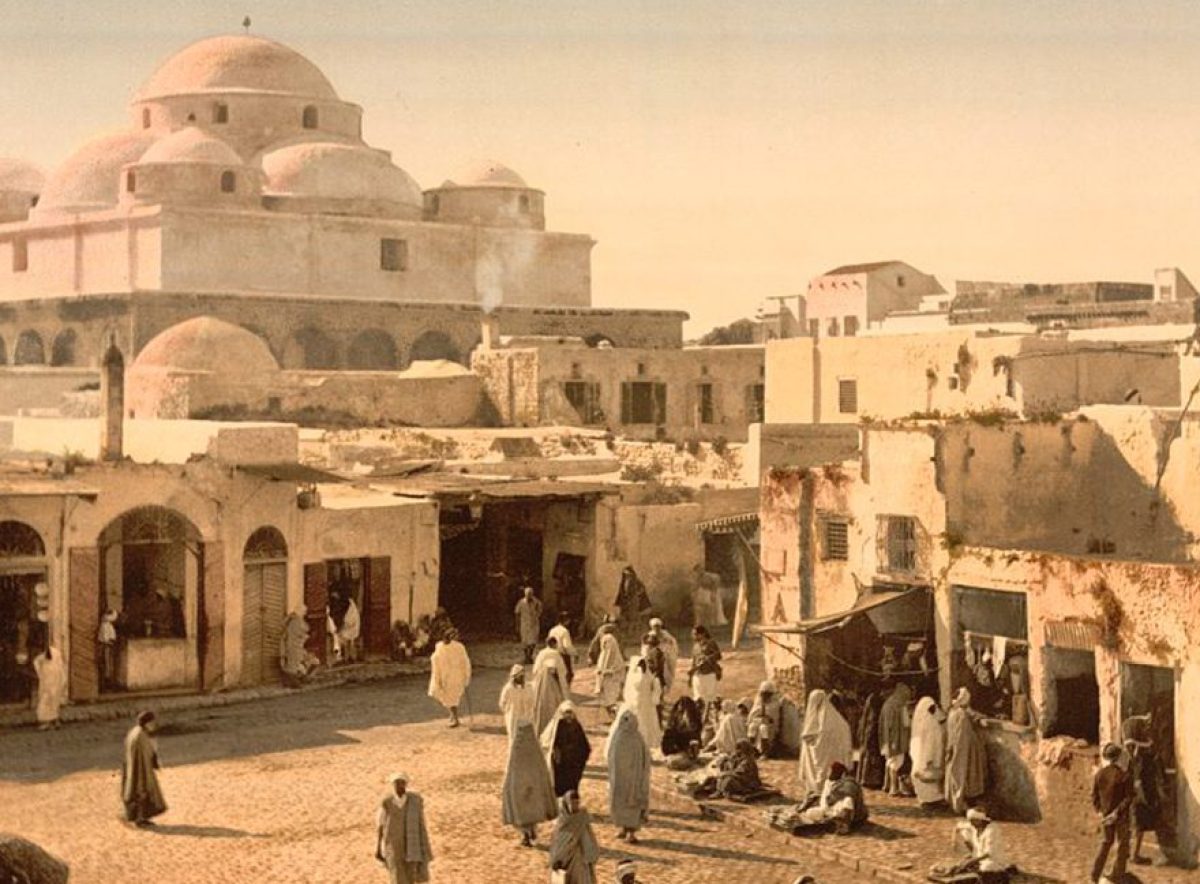
There’s no time machine required for experiencing Tunisian life in 1899. These early postcards give you a peek into aspects of the North African country that have largely vanished.
Pulled from the Library of Congress archives, these photochroms, a colorized predecessor to the postcard, serve as a visual record of the country in the peaceful years before its battle for independence. During the 19th century, much of the African continent was carved up by competing European colonial powers, and France ended up with much of North Africa, including Tunisia. After formally taking it over in 1881, the French governed the country until it became an independent state in 1956.
Taken at the cusp of the 20th century, the photochroms offer a glimpse of the growing European influence on Tunisian culture, as well as a look at the daily lives of Tunisians living under French rule. Hawk-eyed viewers of these images will be able to spot men in Western-style garb, along with examples of French colonialism in the ornate palaces of Tunis and cathedrals, such as St. Louis in Carthage. Despite the colonial influences, you can still find traditional Tunisian street merchants and open-air markets dotting the cityscape.
Take a journey into Tunisia’s past with the photochroms below.
Worshippers leaving mosque, Tunis, Tunisia (Library of Congress)
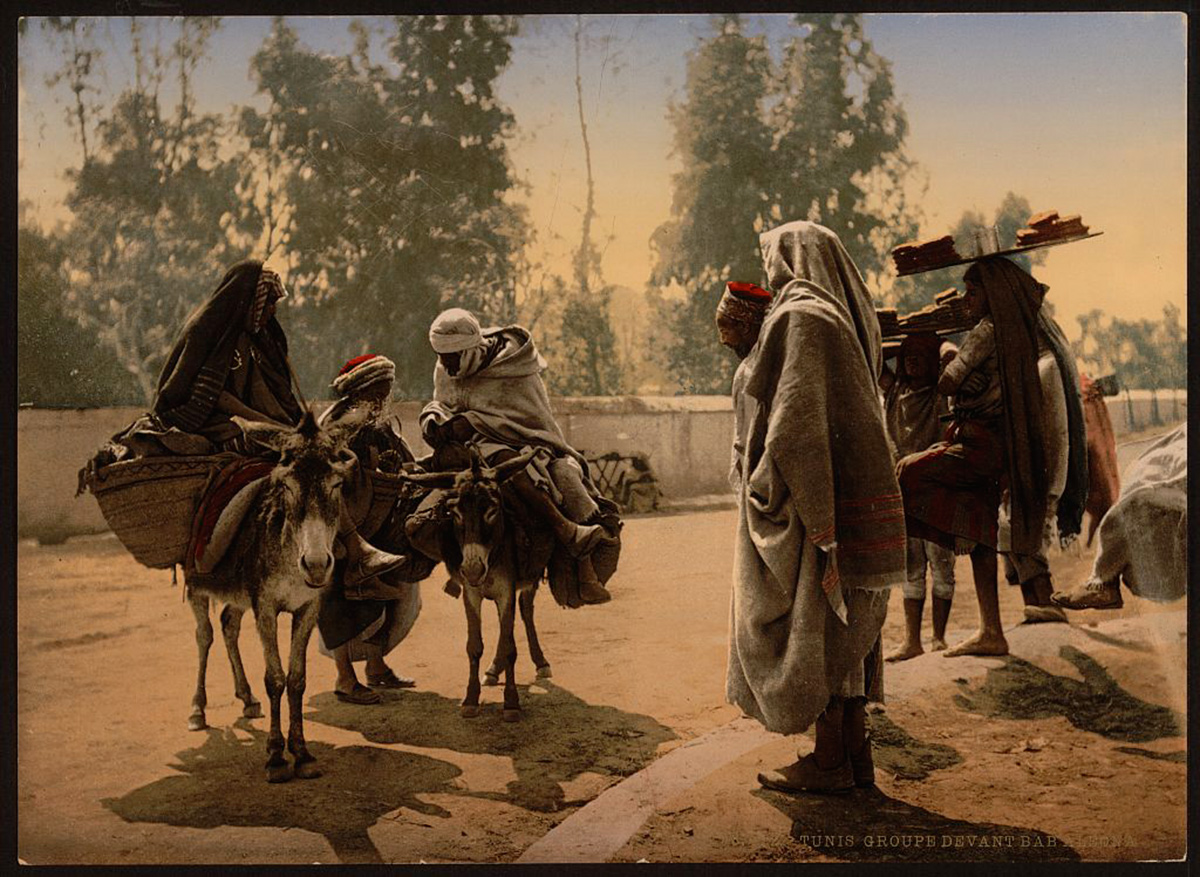
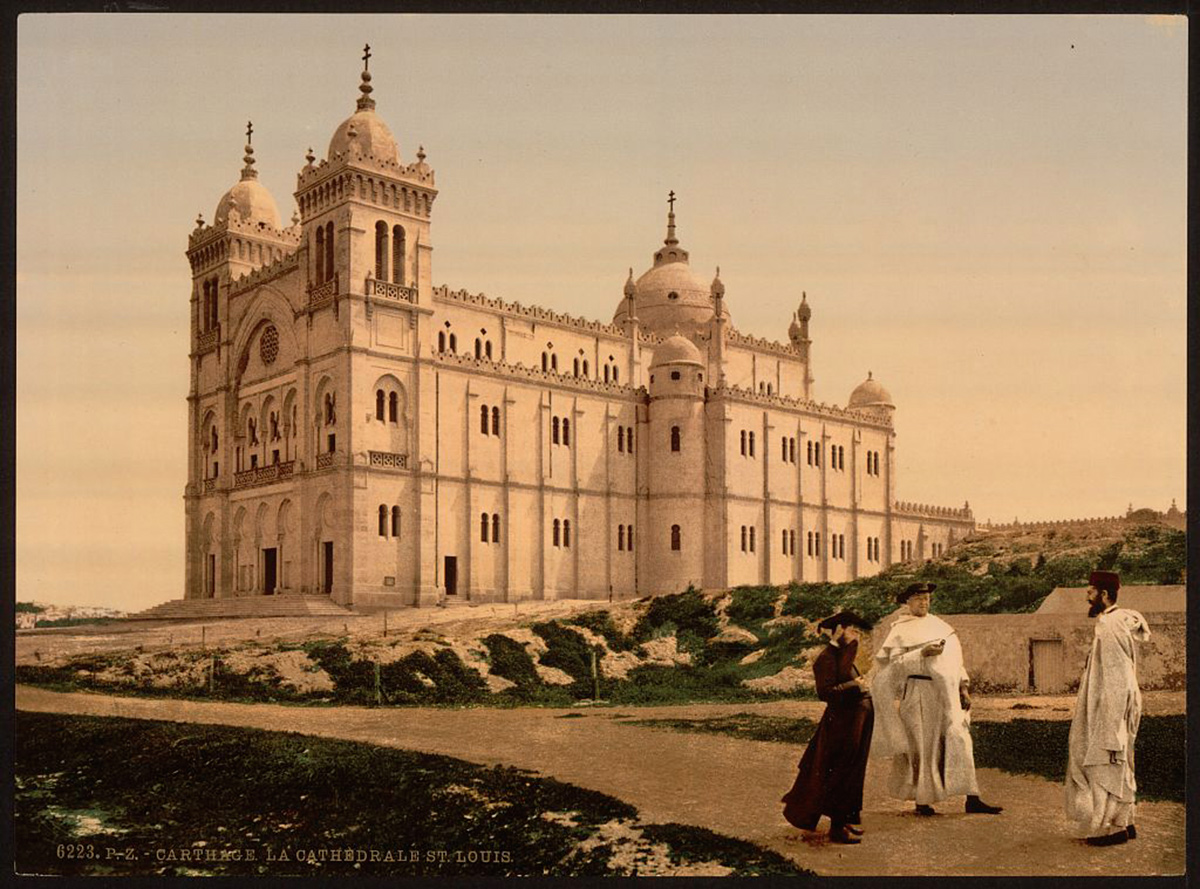
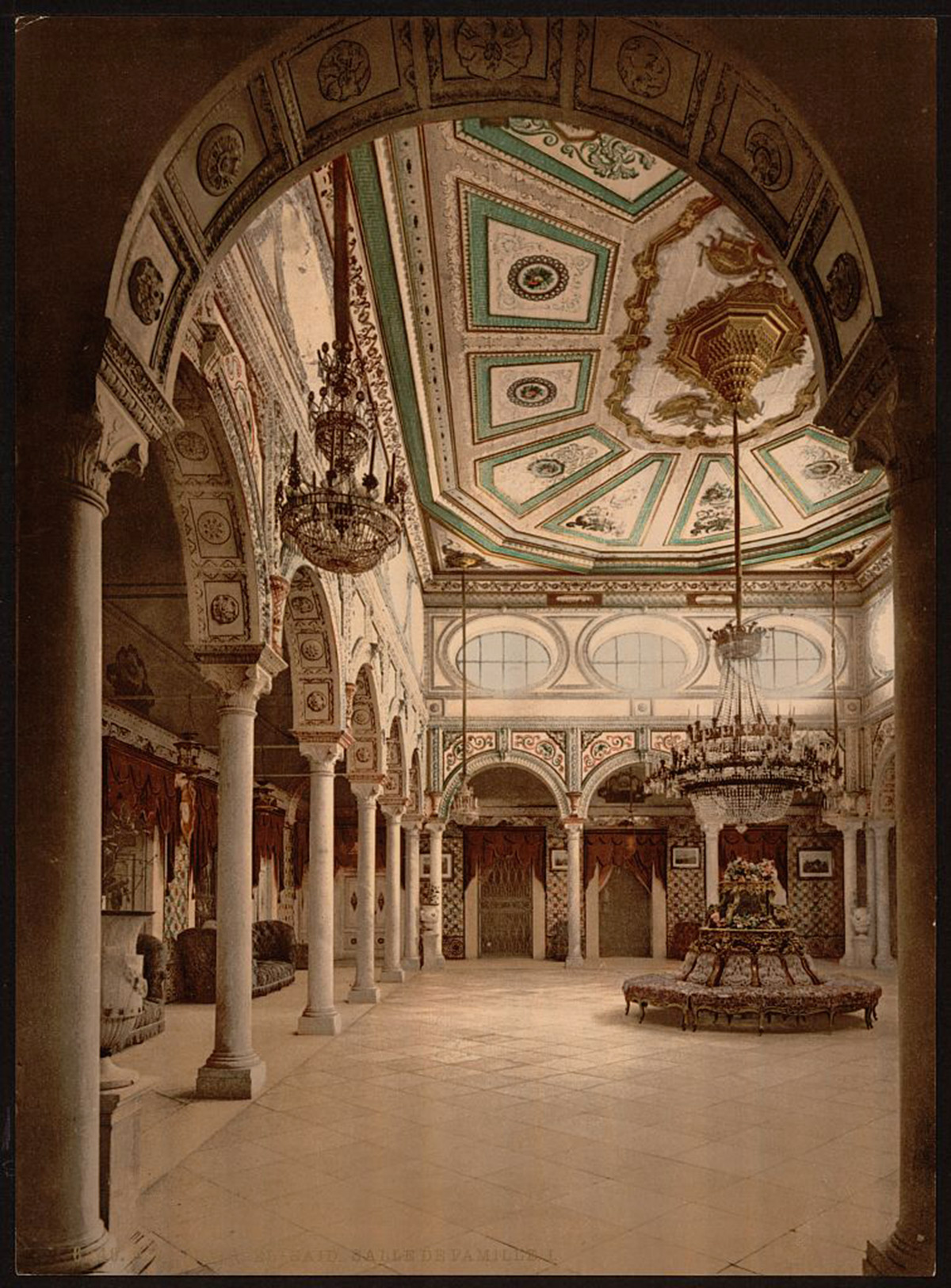
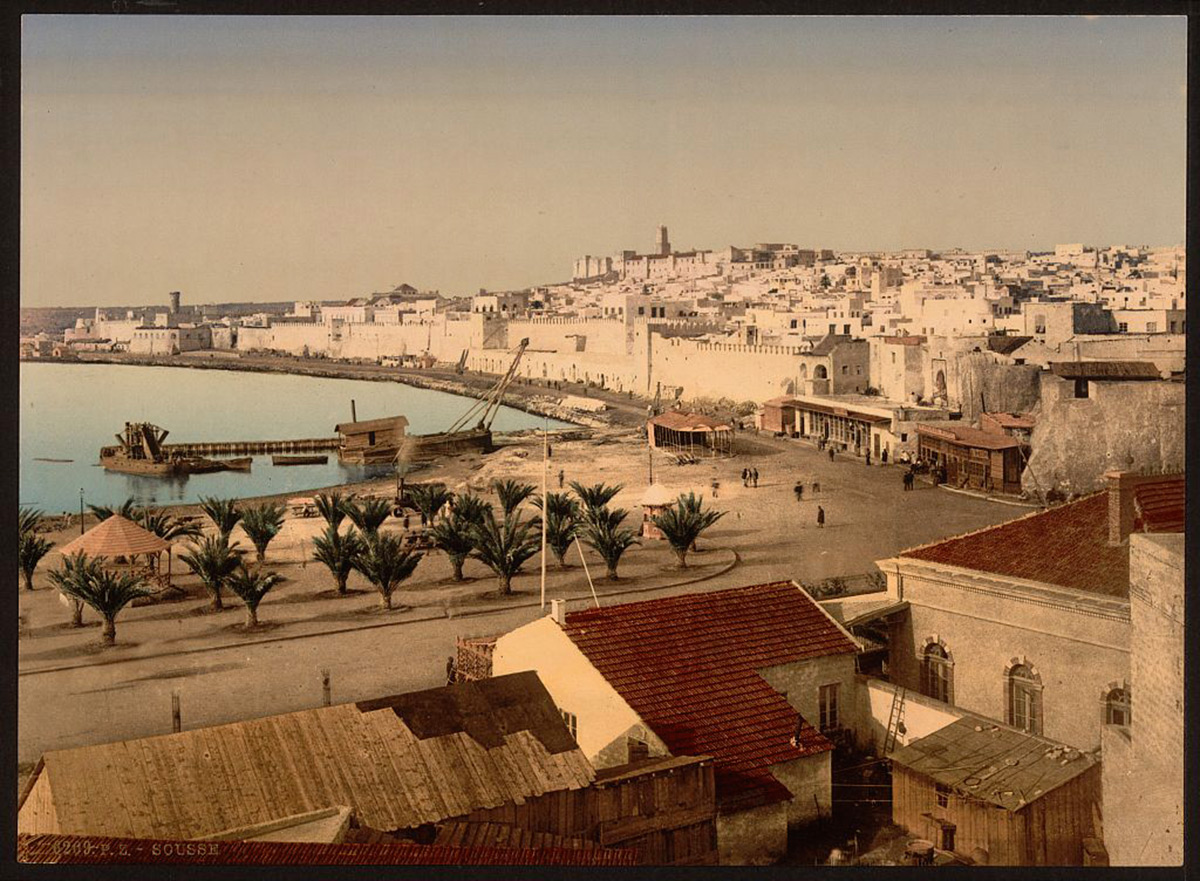
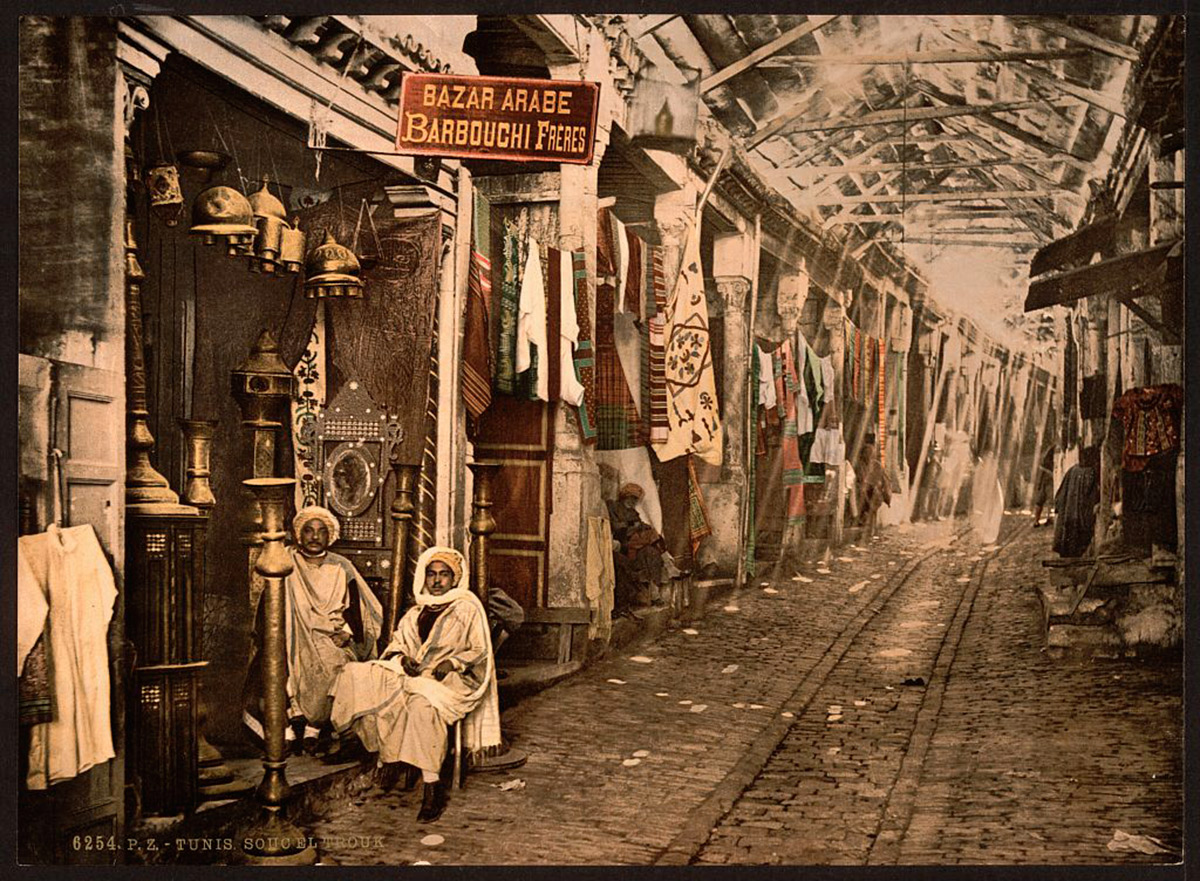
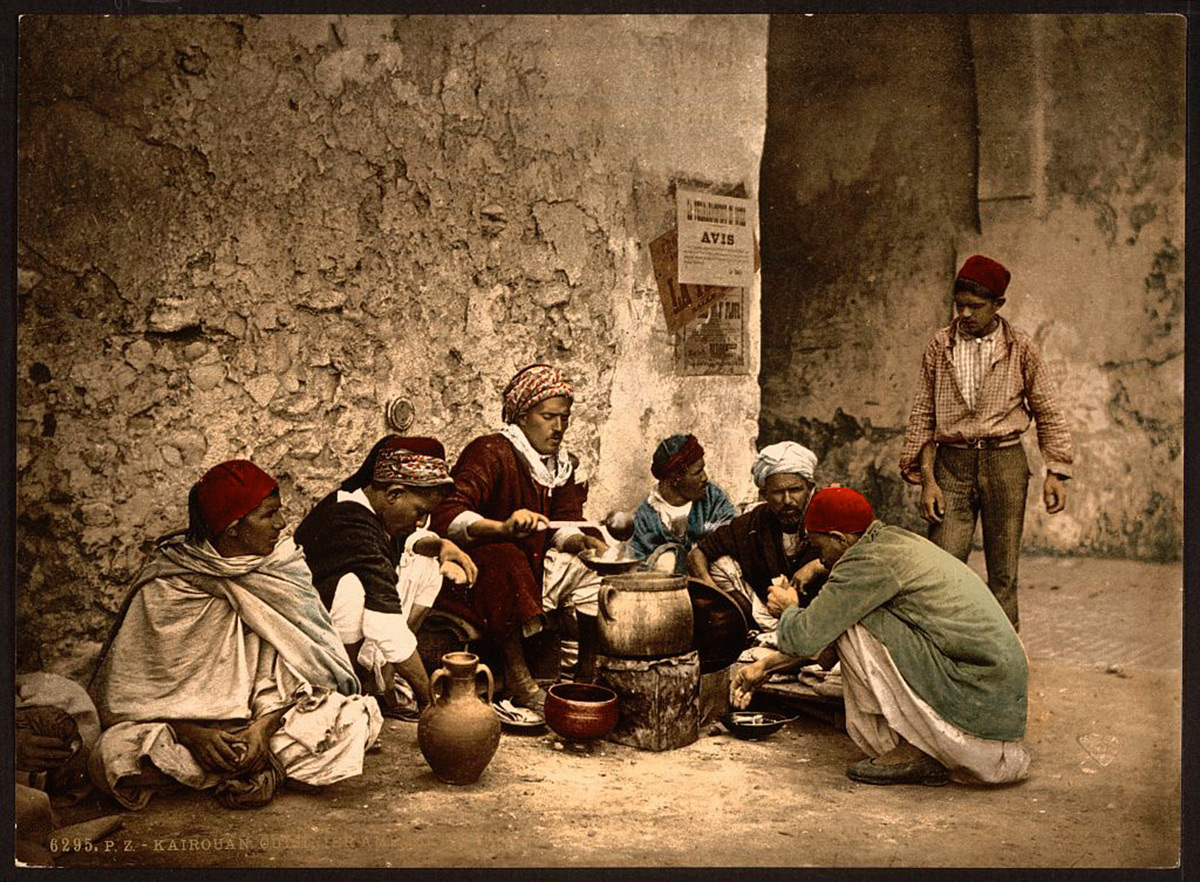
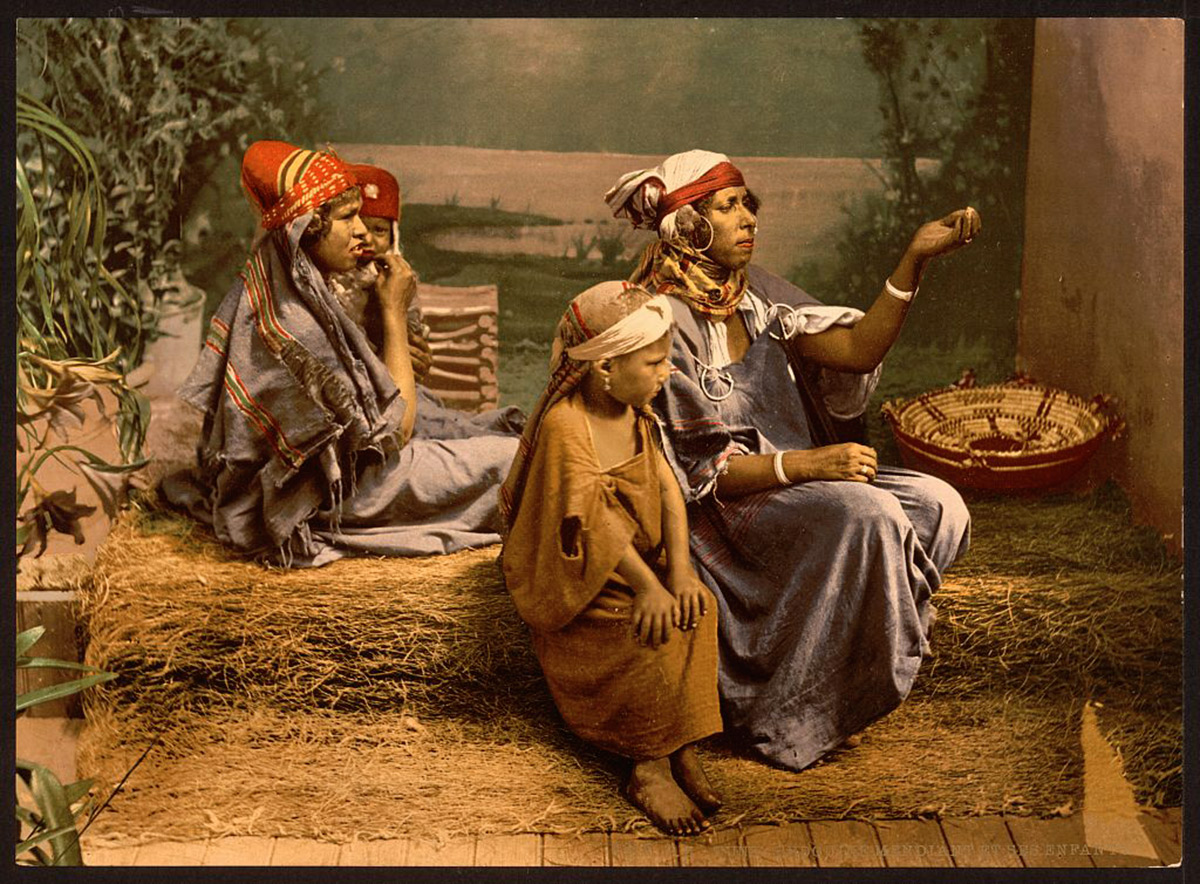
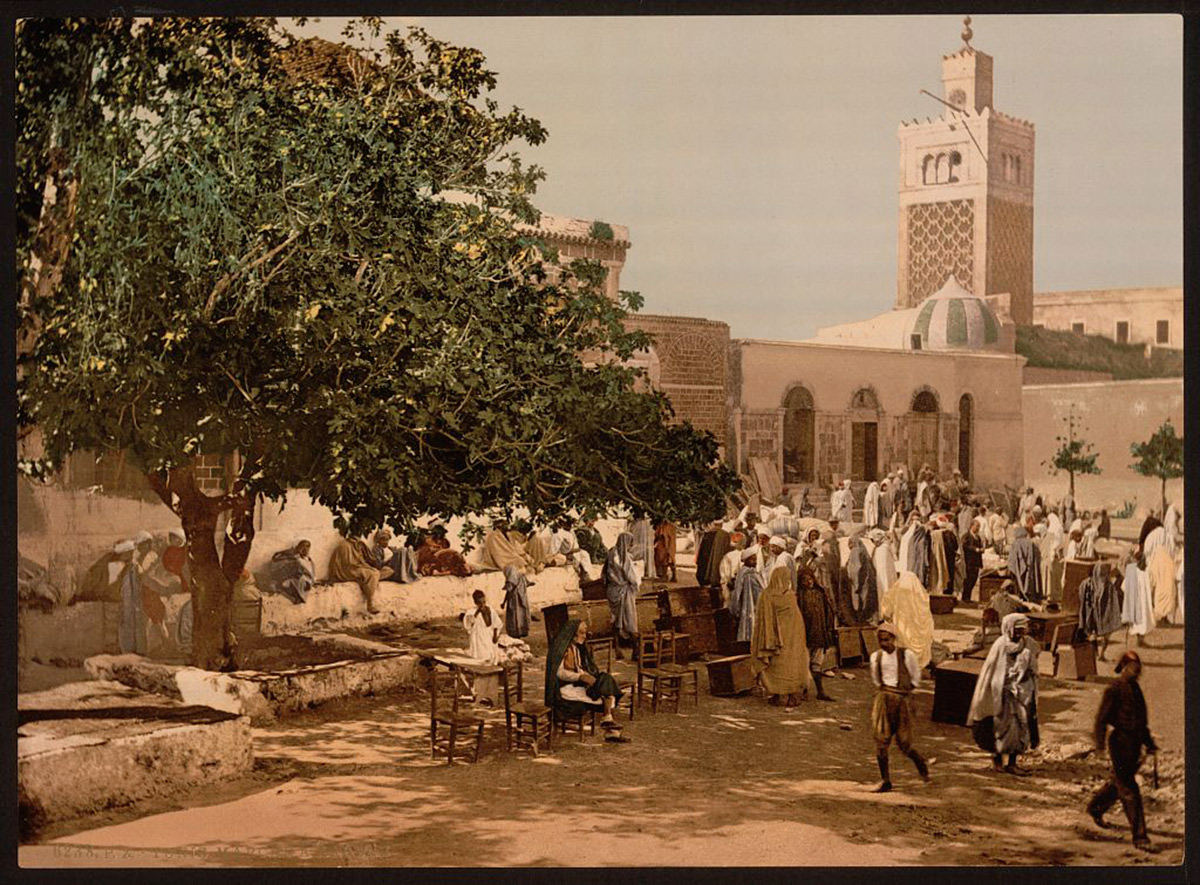
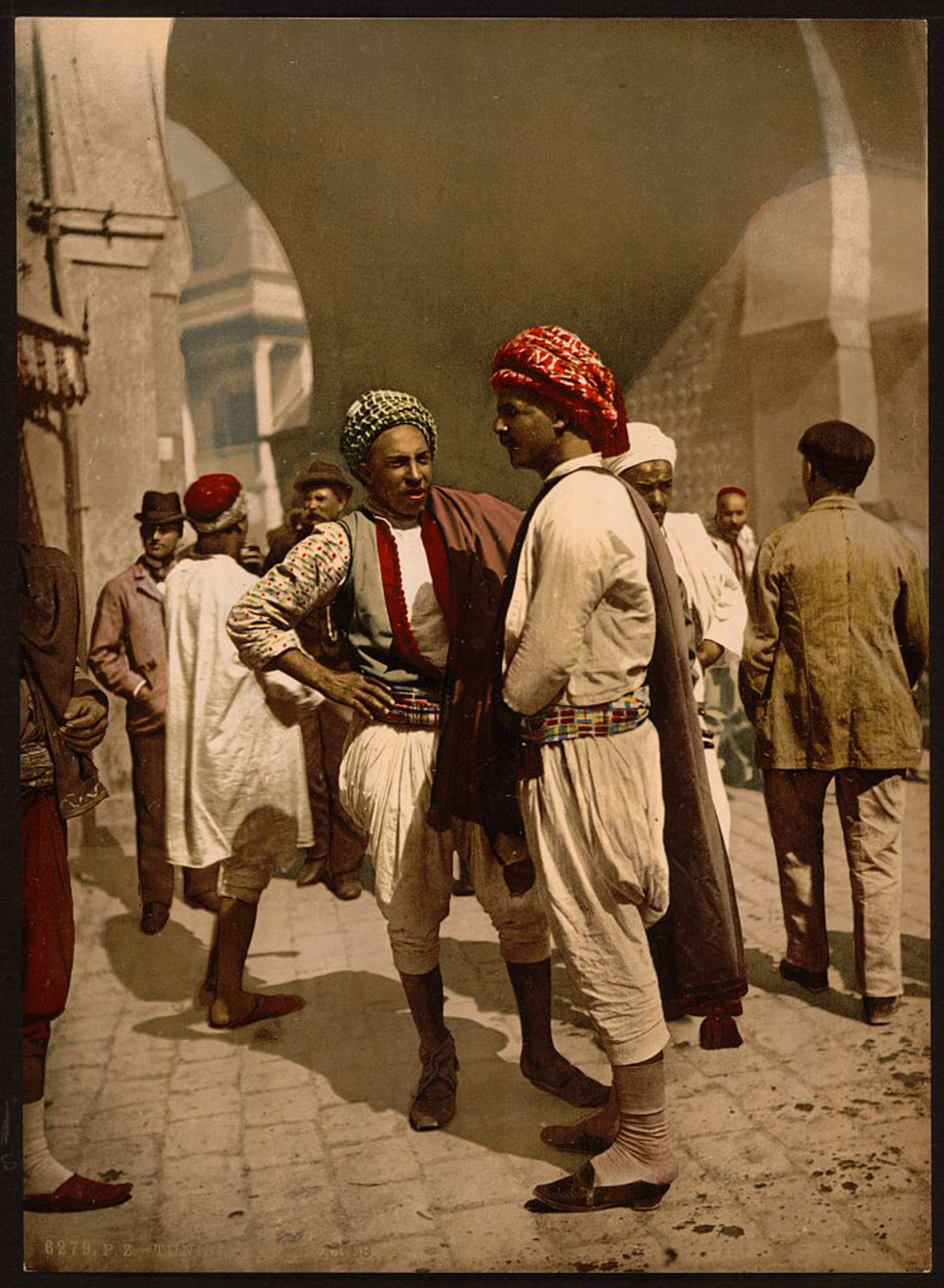
Check out more vintage postcards from Havana and Rome.
—RealClearLife Staff
This article was featured in the InsideHook newsletter. Sign up now.






















